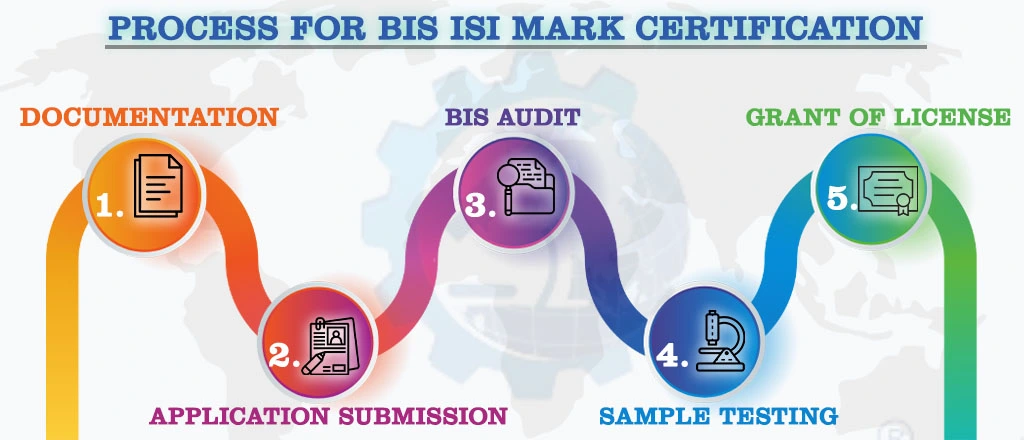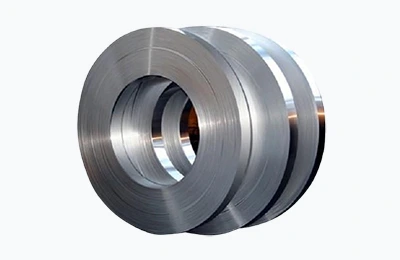BIS CERTIFICATION FOR COLD-ROLLED MEDIUM, HIGH CARBON AND LOW ALLOY STEEL STRIP
IS 7226:1974
In this competitive scenario, it isn't easy to survive in the market without a standard quality and certified product. BIS license may also be required to sell products in the Indian market.
To get BIS certification and produce a standard quality product, the manufacturer must ensure that their product must follow the specified Indian standard.
Let's take a closer look at IS 7226:1974 for cold rolled medium, high carbon and low alloy steel strip.
This standard specifies the requirements for cold-rolled medium, high carbon, and low alloy steel strips with a thickness of up to 3 mm and a width of up to 330 mm intended for general engineering applications.
IS 1387:1967 specifies the general requirements for the supply of cold-rolled medium, high carbon, and low alloy steel strip. Cold-rolled steel strips must be supplied annealed or annealed and re-rolled. Cold-rolled steel strip must be delivered in coils.
Strips must be made from steel produced using an open hearth, electric furnace, basic oxygen, or duplex process, or a combination of these processes. If any other process is used in the manufacturing, the purchaser must be consulted first. If the basic oxygen process is used to manufacture steel, the nitrogen content must not exceed 0.007 percent.
The surface of the cold-rolled steel strip must be free of harmful surface defects such as scales, rust, blisters, laminations, pitting, cracked edges, and so on. Cold-rolled steel strips must have a bright finish.
TESTS
The following tests shall be carried out in accordance with method specified.
- Chemical composition
- Hardness test
- Edge condition
- Rolling tolerance
- Surface finish
Packing and Marking:
Cold-rolled steel strip must be properly packed to prevent rusting and damage during transit. Every coil of strip shall be legibly marked with the manufacturer's name or trademark, grade, size, and cast number, or any other identification mark that allows the coil to be traced back to the cast from which it was made. The ISI Certification Mark may also be applied to the material. The Manufacturer must obtain a BIS license from the Bureau of Indian Standards to use a standard mark (ISI Mark). The Bureau grants a license based on a successful assessment of manufacturing infrastructure, production process, and quality control and testing capabilities during a visit to its manufacturing premises.

NOTE:
For Detailed Information about the Procedure for BIS ISI Certification, Visit :
Conclusion:
If a product falls under the scope of the BIS Conformity Assessment Scheme, All the manufacturers, importers, and foreign entities must obtain BIS ISI Certification. The Bureau may cancel the License if the product fails to meet certification requirements.
Aleph INDIA has been serving the industry as a single-window operator for all product regulatory compliance. We can assist importers or manufacturers in meeting all criteria for importing or selling a product in the Indian market.
International Audits & Participation
Testimonials
BIS REGISTRATION FOR ELECTRONIC & IT PRODUCT
In the era of globalization, world trade is growing rapidly and henceforth, Manufacturing and Import/Export businesses are also growing drastically...View More
BIS CERTIFICATE FOR FOREIGN MANUFACTURER
The Economy of India-the fastest developing economy on the globe with the capabilities that help it matches up with the biggest international...View More
PRODUCT CERTIFICATION SCHEME (ISI MARK) FOR DOMESTIC MANUFACTURERS
Anything a person buys from food to cars, clothes to electronics, branded to unnamed products there is always a question that wanders in one’s...View More
WIRELESS PLANNING AND COORDINATION (WPC)
WPC: Wireless means communication done from one point to another point without the wires and cables. Electromagnetic waves carry the ...View More
BUREAU OF ENERGY EFFICIENCY (BEE) CERTIFICATE
BEE CERTIFICATE: Energy is the future, and its conservation is the way of the bright future. Everyone claims the environment is important...View More
E-WASTE MANAGEMENT
E-waste is one of the world's fastest-growing trash streams. We currently manufacture almost 50 million tones of it each year...View More
Request a call back.
Would you like to speak to one of our Senior Technical advisers over the phone? Just submit your details and we’ll be in touch shortly. You can also email us if you would prefer.
BIS REGISTRATION FOR ELECTRONIC & IT PRODUCT
In the era of globalization, world trade is growing rapidly and henceforth, Manufacturing and Import/Export businesses are also growing drastically...View More
BIS CERTIFICATE FOR FOREIGN MANUFACTURER
The Economy of India-the fastest developing economy on the globe with the capabilities that help it matches up with the biggest international...View More
PRODUCT CERTIFICATION SCHEME (ISI MARK) FOR DOMESTIC MANUFACTURERS
Anything a person buys from food to cars, clothes to electronics, branded to unnamed products there is always a question that wanders in one’s...View More
WIRELESS PLANNING AND COORDINATION (WPC)
WPC: Wireless means communication done from one point to another point without the wires and cables. Electromagnetic waves carry the ...View More
BUREAU OF ENERGY EFFICIENCY (BEE) CERTIFICATE
BEE CERTIFICATE: Energy is the future, and its conservation is the way of the bright future. Everyone claims the environment is important...View More
E-WASTE MANAGEMENT
E-waste is one of the world's fastest-growing trash streams. We currently manufacture almost 50 million tones of it each year...View More
View All Services
Request a call back.
Would you like to speak to one of our Senior Technical advisers over the phone? Just submit your details and we’ll be in touch shortly. You can also email us if you would prefer.






























